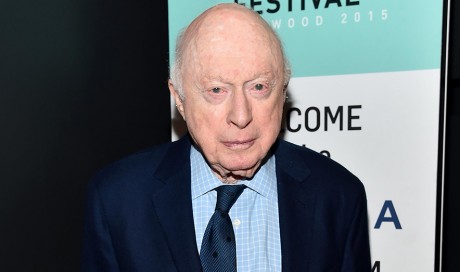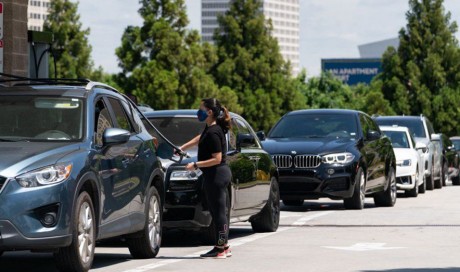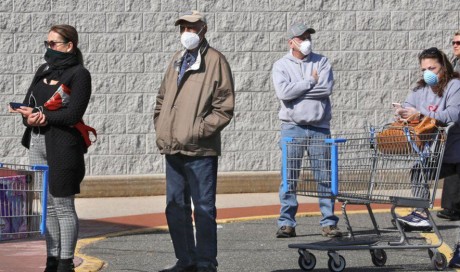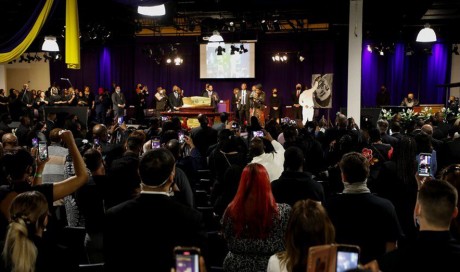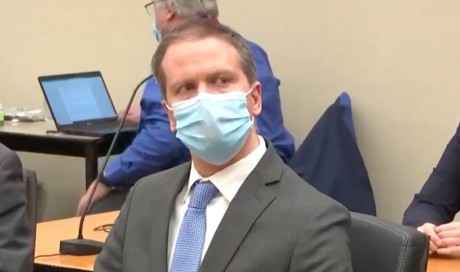After Trump became president, McCain blasted what he called the president's attempts to undermine the free press and rule of law, and lamented the "half-baked, spurious nationalism" of the Trump era.
McCain denounced Trump's performance at a summit meeting with Putin in July as "a tragic mistake," adding, "The damage inflicted by President Trump’s naivete, egotism, false equivalence, and sympathy for autocrats is difficult to calculate."
MCCAIN VS OBAMA
McCain, the son and grandson of U.S. Navy admirals, was elected to the U.S. House of Representatives from Arizona in 1982 after more than two decades of Navy service.
He served four years in the House before Arizona voters elected him to the Senate in 1986 to replace Barry Goldwater, the 1964 Republican presidential nominee revered by conservatives.
In running for president in 2008, McCain tried to succeed an unpopular fellow Republican in Bush, who was leaving office with the country mired in wars in Afghanistan and Iraq and stuck in a financial crisis.
It was a stark contrast between McCain, then a 72-year-old veteran of the Washington establishment, and the 47-year-old Obama, who was offering a "Yes, we can" message of change.
McCain tried to inject some youth and enthusiasm into his campaign with his selection of Palin, Alaska's governor, as his running mate. But the choice backfired as her political inexperience and shaky performances in media interviews raised concerns about her qualifications.
In his new book, McCain voiced regret for not choosing then-Senator Joe Lieberman, a Democrat turned independent, as his running mate.
McCain wrote that he had originally settled on Lieberman, Democrat Al Gore's running mate in the 2000 election, but was warned by Republican leaders that Lieberman's views on social issues, including support for abortion rights, would "fatally divide" the party.
"It was sound advice that I could reason for myself," McCain wrote. "But my gut told me to ignore it and I wish I had."
Obama won 53 percent of the vote to McCain's 45.6 percent.
WAR INJURIES
During the Vietnam War, McCain flew attack planes off aircraft carriers. He was preparing for a bombing run in 1967 when a missile inadvertently fired from another plane hit his fuel tanks, triggering a fatal explosion and fire. He suffered shrapnel wounds.
A few months later on Oct. 26, 1967, McCain's A-4 Skyhawk was shot down on a bombing mission over North Vietnam's capital and he suffered two broken arms and a broken leg in the crash. A mob then dragged him from a lake, broke his shoulder and stabbed him.
Held at the notorious "Hanoi Hilton" prison and other sites, McCain was beaten and tortured, suffering broken bones and dysentery. He was released on March 14, 1973, but was left with permanent infirmities.
In Congress, McCain built a generally conservative record, opposing abortion and advocating higher defense spending. He supported Bush's 2003 invasion of Iraq and criticized Obama for not doing more to intervene in Syria's civil war.
Still, he prided himself on his reputation as a maverick and had a history of working across party lines on immigration, climate change and campaign finance reform.
He also spoke out against the Bush administration's use of waterboarding, a torture technique that simulates drowning, and other harsh interrogation tactics on detainees in the aftermath of the Sept. 11, 2001, attacks.
He urged the closure of the prison for foreign terrorism suspects at the U.S. naval base at Guantanamo Bay, Cuba, and also sponsored an anti-torture measure that passed Congress in 2005.
In a 2002 memoir, McCain wrote, "I'm an independent-minded, well-informed public servant to some. And to others, I'm a self-styled, self-righteous maverick pain in the ass."
McCain was born on Aug. 29, 1936, at an American naval installation in the Panama Canal Zone - U.S. territory at the time - when his father was stationed there.
He conceded he was a "smart ass" during his years at the U.S. Naval Academy and graduated fifth from the bottom of his class.
McCain divorced his wife Carol after 15 years of marriage in 1980 and weeks later married the former Cindy Henley, daughter of a wealthy beer distributor in Arizona.
A dark period for McCain came as one of the "Keating Five" group of senators accused of improperly intervening with federal regulators to help political contributor and bank executive Charles Keating, whose Lincoln Savings and Loan failed in 1989 at a cost to taxpayers of $3.4 billion.
McCain was cleared of wrongdoing in 1991, but the Senate Ethics Committee rebuked him for poor judgment.
On July 25, 2017, McCain delivered a Senate floor speech not long after his cancer diagnosis that was widely seen as his farewell address. It included a call to fellow Republicans to stand up to Trump and for all lawmakers to work together to keep America as a "beacon of liberty" in the world.
"That is the cause that binds us and is so much more powerful and worthy than the small differences that divide us," McCain said.
Share This Post

